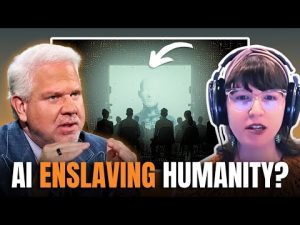In recent discussions on the state of government and social programs in the United States, there has been much contention about the balance between personal freedom and collective responsibility. This complex debate dives into the heart of whether systems like socialism are compatible with American values or if they create more issues than solutions. Enthusiastic commentators frequently illuminate the stark contrasts between private and government-run institutions—especially in the fields of education and social welfare.
The first foot in the door of this spirited conversation often revolves around programs funded by tax dollars. Critics argue that these systems are riddled with inefficiency and incompetence. For example, public education funding can vary widely, with figures indicating that the average per-student expenditure in the public school system often exceeds that of private institutions, yet the return on investment is debated heavily. Many proponents of private schools—especially religious ones—assert that these institutions are often able to deliver superior education at a lower cost, owing largely to their management structures and community support.
Social welfare programs also come under scrutiny in this context. Conversations often center around the idea that a safety net is necessary, but it’s the structure of that safety net that raises eyebrows. Advocates argue for a localized approach that emphasizes community involvement and personal charity, as opposed to a federalized system that some see as socialism disguised. Detractors of this approach point out that while voluntary charity benefits many, there are often people in need who fall through the cracks without a structured governmental support system.
The irony in these discussions sometimes lies in the mislabeling of government functions as “socialist.” A retired federal employee who speaks in these forums might point out that while the government has its hands in many things, it does not operate as a socialist entity outright. This claim often stirs laughter from those who examine the efficacy of social programs, with many arguing that the government bureaucracy operates more like a dysfunctional machine rather than a well-oiled engine of social good.
A pivotal point in this debate is that of faith and community. Many people assert that moral responsibility should fall on individuals, families, and churches rather than the government. The argument here is that, much like an enthusiastic fundraising event at a local church, charity should be born from community effort rather than being extracted from wealth involuntarily through taxes. This framework is contrasted against systems where funding is dictated by bureaucratic necessity, and often met with eye rolls at the perceived inefficiencies of those systems.
In conclusion, while the debate over socialism, government efficiency, personal responsibility, and community care continues to pepper our political climate, it remains clear that the conversation is far from black-and-white. This multifaceted discussion reveals a fundamental quest for balance—a search for structures that can provide for those in need while still upholding the core values of individual freedom and community solidarity. As the dialogue grows, from upbeat talk shows to more simmering discussions, the voices of hope and caution will remain essential to guide the way forward in America’s complex landscape of governance.







